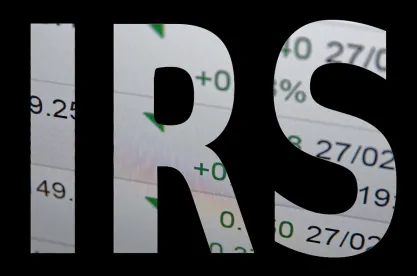On August 4, 2023, the IRS published proposed regulations that, if finalized, would identify monetized installment sale transactions as a listed transaction. Sellers, intermediaries and other involved parties would be required to report such transactions to the IRS. These proposed regulations come nearly two years after the IRS for the first time placed monetized installment sale transactions on its annual “Dirty Dozen” list, which identifies tax transactions that it has declared as abusive.
The mechanisms of a monetized installment sale can be broken down into five steps.
-
Seller identifies a potential buyer willing to purchase the subject property (sometimes an operating business) with cash;
-
Seller enters into an agreement with an intermediary, pursuant to which the intermediary buys the property from the seller in exchange for a promissory note which only requires interest payments by the intermediary prior to the end of the note’s term;
-
Buyer purchases the property from the intermediary;
-
Seller obtains a loan from a traditional lender, typically with the same “interest only” terms and rate; and
-
Intermediary transfers the sales proceeds it received from buyer to lender (where such amounts are to fund the loan that it made to the seller).
Sellers enter these transactions in order to defer recognition of gain on a sale. Had the seller simply sold the property to a buyer for cash, they would have been required to realize and recognize all the taxable gain in the year of the sale. By first selling the subject property to an intermediary (which “purchases” the property by issuing a note), the seller can theoretically defer the gain recognition under the Code Section 453 installment sale rules. Moreover, the subsequent loan that the seller receives from a lender effectively places the cash value of the sale in the seller’s hands immediately. When the dust clears on the monetized installment sale, the seller has the immediate benefit of cash in hand while deferring the payment of taxes attributable to the sale.
While the IRS has long questioned the purpose of such a plan beyond tax avoidance, Friday’s announcement puts sellers on notice that these may soon become listed transactions. If the regulations are finalized, sellers will need to report such transactions to the IRS. Additionally, lenders, intermediaries and “any other person” whose federal income tax return reflects any tax consequences of such a strategy must report their participation in such transactions. Further, any “material advisor” who has provided any aid, assistance or advice with respect to organizing or completing a monetized installment obligation will be required to disclose information regarding the transaction. As drafted, the proposed regulations do not require buyers in such transactions to disclose the details (so long as they were not material advisors) but the IRS has asked for more guidance on whether buyers should also be required to make such disclosures.
The proposed regulations make clear that the IRS views monetized installment obligations as fictitious transactions structured solely for tax avoidance purposes. Thus, under the economic substance doctrine, the IRS may disregard the structure of the transaction and require the seller to report income in the year of the sale. Should the proposed regulations be finalized, taxpayers involved with these sorts of transactions will be required to report the transactions or potentially face penalties. Further, any taxpayer engaging in such a transaction risks an IRS audit, a finding that the transaction is a sham and the imposition of tax, interest and significant penalties.
Individuals and businesses that have been involved in such transactions should contact legal counsel.






 />i
/>i
